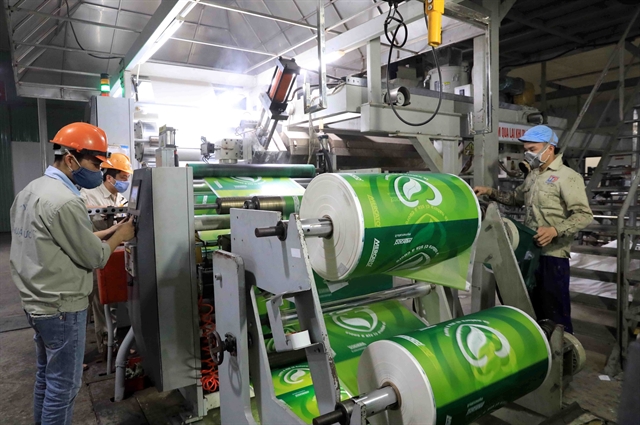To stay competitive in global market, Việt Nam's packaging industry must embrace green production practices and sustainability.

HÀ NỘI — To stay competitive in the global market, Việt Nam's packaging industry must embrace green production practices and sustainability.
The shift towards green growth in the packaging sector is a response to both market demands and environmental pressures.
According to the Việt Nam Beer-Alcohol-Beverage Association (VBA), the packaging industry plays a crucial role in protecting and transporting goods, serving as an essential link in the broader production and consumption chain.
The industry continues to experience robust growth while increasingly adopting environmentally friendly production methods.
However, businesses in this sector face many challenges, such as innovating their technologies and reducing environmental impacts.
These challenges also include adapting to changing consumer behaviours and meeting higher product quality standards.
The general director of Tetra Pak Vietnam, Nguyễn Thanh Giang, highlighted that the food and beverage (F&B) sector in Việt Nam is poised for rapid expansion, with an expected compound annual growth rate (CAGR) of about 10.3 per cent until 2027.
By that date, the sector is projected to reach a value of VNĐ872.9 quadrillion, putting further strain on packaging companies to expand operations and innovate accordingly.
Aside from pressures related to growth, the packaging industry must contend with mounting environmental concerns. Plastic consumption in Việt Nam has dramatically increased, from about 200,000 tonnes in 1990 to over nine million tonnes by 2022.
This surge, forecast to double by 2029, has raised alarms about its environmental impact, with significant risks of pollution and waste management issues if left unchecked.
Nguyễn Thi, from the Legal Department of the Ministry of Natural Resources and Environment (now the Ministry of Agriculture and Environment), emphasised the urgent need for measures to curb plastic waste.
In response to these pressures, packaging companies in Việt Nam are adopting innovative solutions aimed at sustainability.
Giang emphasised that the packaging industry should focus on three key areas to align with the fast-growing F&B sector, including optimising production costs, applying green technology and enhancing recycling efforts.
Another significant solution being implemented is the shift toward sustainable materials. Many large corporations, including international brands, are investing in environmentally friendly materials. Moreover, packaging designs are becoming more streamlined to facilitate easier recycling processes.
The role of digital transformation and automation is also important. By incorporating these technologies, packaging companies can reduce production costs, improve operational efficiency and lower carbon emissions.
Tetra Pak, for instance, is heavily investing in recycling technology and collaborating with various entities to return recycled products to the market, contributing to the company’s Net Zero strategy of neutralising carbon emissions from production.
While innovation in the private sector is crucial, the responsibility for recycling and sustainable practices extends beyond companies.
The chief operating officer at the Việt Nam packaging recycling alliance (PRO Vietnam), Chu Thị Kim Thanh, stressed that effective recycling requires collective efforts from all sectors of society.
Since its establishment in 2019, the alliance has partnered with numerous large enterprises to implement programmes that collect, sort and recycle plastic waste.
Equally important is collaboration across the entire supply chain, from manufacturers to consumers. By working together, these entities can foster a circular economy that minimises reliance on virgin plastic and supports the use of sustainable materials. — VNS





